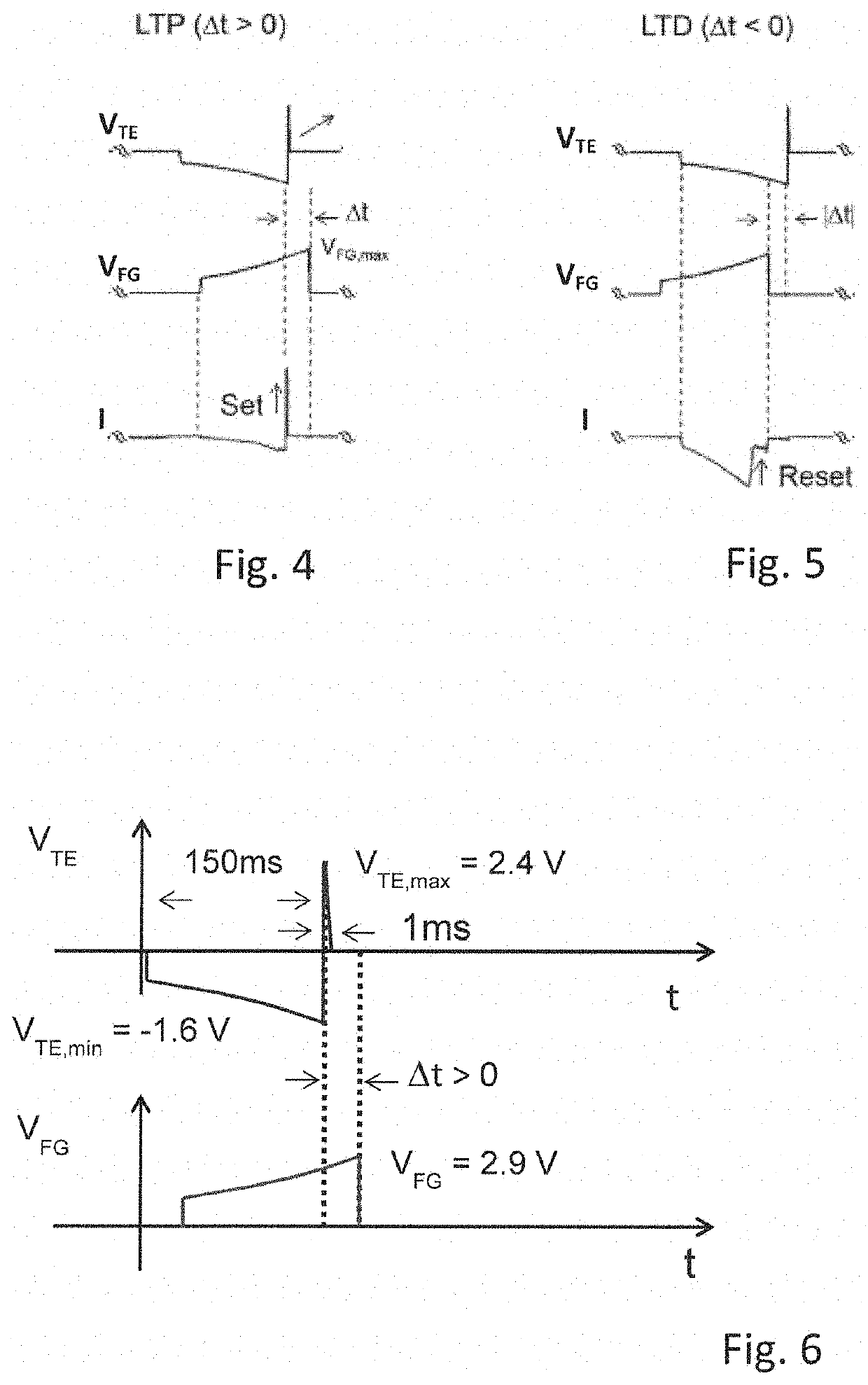Electronic neuromorphic system, synaptic circuit with resistive switching memory and method of performing spike-timing dependent plasticity
a neuromorphic system and resistive switching technology, applied in the field of electromorphic neuromorphic systems, can solve the problems of inability to achieve the satisfactory solution of memristor synapses circuits for communication and learning with reduced size and complexity, and inability to achieve low power consumption
- Summary
- Abstract
- Description
- Claims
- Application Information
AI Technical Summary
Benefits of technology
Problems solved by technology
Method used
Image
Examples
Embodiment Construction
[0034]With reference to FIG. 1, a synaptic circuit 3 performing spike-timing dependent plasticity STDP according to an embodiment is illustrated.
[0035]The synaptic circuit 3 is a four-terminal component interposed between a pre-synaptic neuron 2 and a post synaptic neuron 4.
[0036]The synaptic circuit 3 is configured to receive a first signal VTE by a first input terminal 20 connected to the pre-synaptic neuron 2, to receive a second signal VCG by a second input terminal 21 connected to the pre-synaptic neuron 2 and to provide an output signal IBE to the post-synaptic neuron 4 by an output terminal 23.
[0037]Furthermore, the synaptic circuit 3 is configured to receive a retroaction signal VFX by a retroaction terminal 24 connected to the post synaptic neuron 4.
[0038]The synaptic circuit 3 comprises a memristor 10 that is a two-terminal component having a variable resistance value R. The memristor 10 is interposed between the first input terminal 20 and a first inner node 27 connected ...
PUM
 Login to View More
Login to View More Abstract
Description
Claims
Application Information
 Login to View More
Login to View More - R&D
- Intellectual Property
- Life Sciences
- Materials
- Tech Scout
- Unparalleled Data Quality
- Higher Quality Content
- 60% Fewer Hallucinations
Browse by: Latest US Patents, China's latest patents, Technical Efficacy Thesaurus, Application Domain, Technology Topic, Popular Technical Reports.
© 2025 PatSnap. All rights reserved.Legal|Privacy policy|Modern Slavery Act Transparency Statement|Sitemap|About US| Contact US: help@patsnap.com



